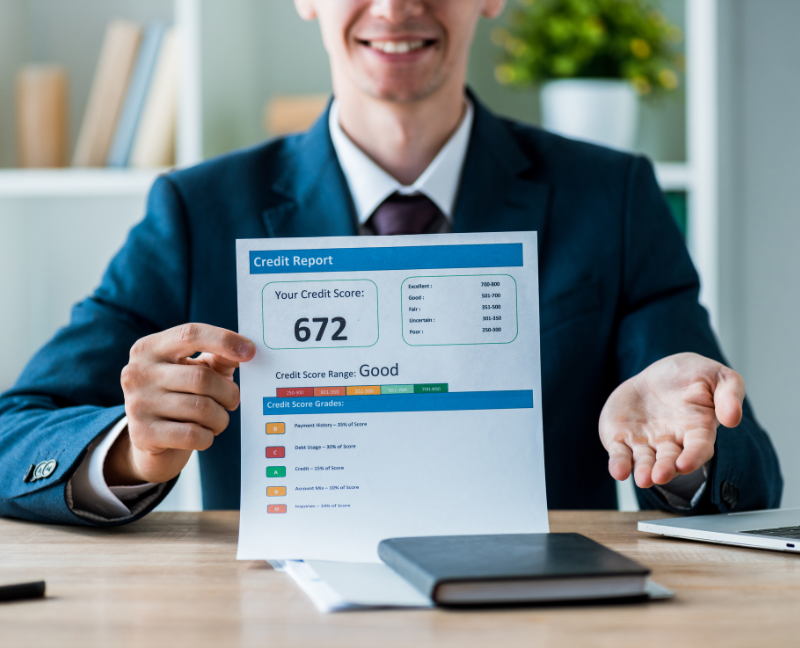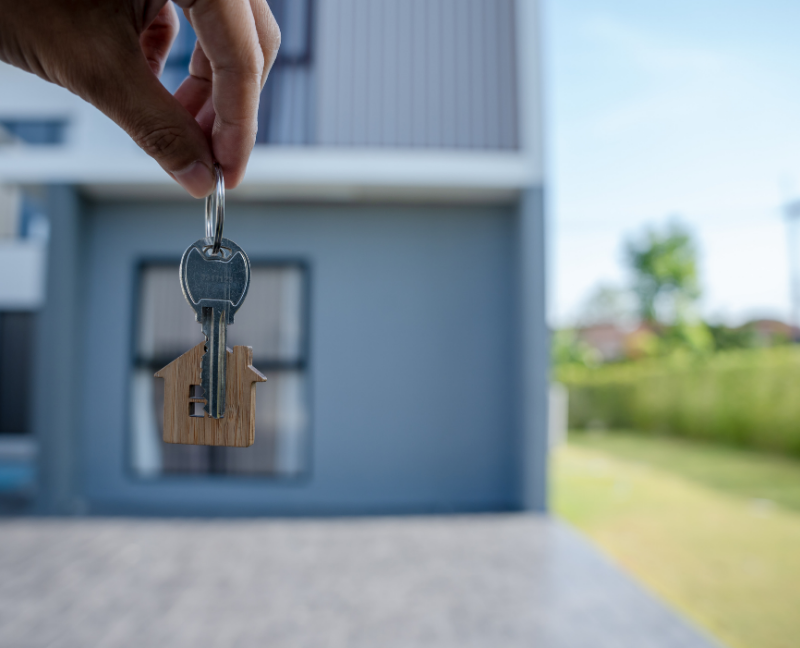Dreaming about having your own home is one thing; getting ready to find one is another.
It’s more than just having the money to purchase a property because the truth is, when you find the home of your dreams and you’re ready to move into a new chapter of your life, you have to do a lot of things… and maybe more when you have a pet, such as a dog.
Like us, our dogs can become stressed, too. Moving with a pet can require care and skill as they adjust to their new environment and new home. You can make the process a little less stressful for them by following these steps to help ensure a smooth transition for our fur friend.
Before you get them ready for moving, prepare and plan the things you need to keep your pet safe and secure.
Dogs, like humans, live in a world of routine. They expect to be fed, walked, and sleep next to you at a certain time. Dogs are creatures of habit and become vigorous in a secure and loved environment. Any changes to their routine can stress them out and might cause problems like:

Help your dogs become familiar with the moving supplies by letting them sniff and examine the boxes. This way, they won’t be alarmed when you pack your things at home.
Dogs may be confused if the surroundings seem to be chaotic. You can help them relax and be familiar by moving out a few boxes at a time. Don’t let your dog be startled on the day of the move with the movers going in and out of your home. Allow them to adjust to one room and include their favorite toys, food bowls, treats, and of course, water.
You can also start taking your dog to the new home a couple of times before the actual move so they can get familiarized with the place and sniff the new smell. If they chew and urinate while exploring you can teach them and reinforce desirable behaviors while interrupting them so they won’t do it again. Keeping them close while you teach them and while they explore can help.
Getting plenty of exercise is a stress reliever for both humans and dogs. You can walk them around the neighborhood or play fetch with them. Take a break from packing and burn that extra energy.
When your dog feels safe and comfortable in the environment, it will feel less anxious. You can help them feel safe by carrying them with you or putting them in a crate in a safe and quiet area of the house. You can also ask a family member to look after your pet or put them somewhere they’re familiar with.
Prepare your pet’s belongings in one place when you pack. Keep their bed, toys, blankets, favorite bowls, and other comfort items for your dog. This way, it will help your pet feel more at home when you move to your new place. Designate a place for all your dog’s items so you won’t have a hard time finding them on the day of the move.
Check every corner of your home and remove anything harmful to make sure that your pet is safe. It’s a plus if your new home has a gate or fence, so they can move and play freely. Just make sure to check every inch so they cannot escape.
Your dogs might find it difficult to understand what’s happening, causing them to bark, be clingy, or present bad behavior. You need to be patient as they explore and settle into their new home. It may take weeks before your dog can finally settle down and become comfortable.
To ensure a smooth transition, remember to show good behavior with your dog. Even if they show bad behavior as you go through the moving-in process. Showing bad behavior can add stress to them aside from the changing surroundings.
Saying “no” consistently when they do something you don’t like in a good way or without yelling can help them understand and can change it. Trying other words or sounds aside from “no” with your dog can also help them cope and avoid being confused or anxious. By reinforcing good behavior you make your dog as content as possible and you’ll also be stress-free.
Conclusion
Dogs adapt fairly to new situations, putting in good behavior and spending more time with them will make it easier for them to adapt to their new surroundings. Being aware of the potential stress-related behaviors of your dog can help you prevent it.
To learn more tips on moving to a new home with your pets, you may visit our website or call us at 317-316-8224 so we can assist you.
It is critical to get your home in front of as many eyes as possible during the marketing process, and this is exactly what happens when you join an MLS. A wise real estate agent will use the Multiple Listing Service (MLS) as one of numerous techniques to get their client a terrific offer.
Continue reading to find out why an MLS is essential when selling or buying a home.
The MLS -- or multiple listing service -- refers to a database that contains all of the information on real estate properties for sale in a given geographic area while keeping everything in order. It also promotes greater collaboration among real estate agents, brokers, and other salespeople involved, resulting in a more efficient market. Both buyers and sellers benefit from this.
Every local real estate company has its own MLS. Some have data-sharing agreements, allowing you to list your home in more than one geographic MLS.
Working with a contributing member, such as a real estate agent in Indiana or an agency, can help you list in the MLS. To become a contributing member of the system, you must first be a member of a local real estate association.
The MLS consolidates property listing data from many regions into a single centralized database, allowing real estate agents and brokers worldwide to access information on literally thousands of houses for sale.
Here are the top five benefits of using the MLS:
Accuracy
Real estate professionals receive new and regularly updated property listing information from the MLS. When it comes to property information, MLS databases are known for being accurate.
This is mostly because all real estate professionals must follow particular MLS laws and regulations when listing homes, which include timeliness, property information correctness, authentic photo information, and more. As a result, you can be confident that you are receiving not only genuine but the most up-to-date listing information.
Data Access and A Large Clientele
Realtors with MLS access profit from a larger-than-usual clientele due to their access to a diverse selection of properties. The more property you have to show your clients and prospects, the more likely you are to close a sale. Furthermore, there is a significant potential for getting new clients through the relationship with the involvement of specialists in the database.
Exposure
Another benefit of MLS access is increased listing visibility. Being a member of an MLS has aided many realtors in advertising their properties. The Multiple Listing Service is both a platform for obtaining listing data and a marketing tool for real estate brokers. The platform allows your real estate listing to be viewed by a large number of users looking for properties.

Technology Access
Many real estate organizations and MLSs provide their members with numerous membership benefits, including access to some of the most cutting-edge real estate technologies at below-market costs. As a result, as an MLS member, you will have access to various new PropTech options, such as a native real estate app, a website, a QR code generator, and much more to market your brand.
Reasonably Priced
The cost of joining a central system that provides a myriad of benefits to real estate professionals is worth it. After joining an MLS, real estate agents gain data access, exposure, and membership privileges that provide new benefits at no additional expense.
An MLS number is a unique identifier for inventory associated with your home. It has no meaning. They are in order and have nothing to do with your house. We employ them as agents to help us find your home faster in the MLS.
Conclusion
The MLS was formed after decades of hard work to increase the ease of selling houses and expose them to the widest possible audience of purchasers. It's a fantastic mechanism that every vendor should take advantage of.
Want to learn more about MLS or need guidance on selling or buying a home? If yes, comment "YES" below or email us at dennis@indyhomepros.com.
You're probably here because you already know how powerful email marketing is.
If not, let us tell you that email marketing is one of the most successful ways to convert real estate leads into clients.
Almost everybody has and uses email. It has a huge part in our lives and most of us use it for about six hours every day.
However, the reason email is popular is also the reason it is difficult. Consumers today are overwhelmed with information and have learned to be incredibly selective about where they spend their time and money.
If you want to win with email, you must know how to get attention.
Your prospects want material that answers their problems or helps them achieve a certain objective. In real estate, the goal is to make one of the most significant purchases of their lives.
This article will teach you all you need to know to establish an email nurture campaign that will turn passive leads into committed customers.
A drip email campaign is a series of automated emails meant to provide relevant information to newsletter subscribers, leads, and prospects over time.
The purpose of drip email campaigns for real estate agents and teams is to slowly and regularly help potential buyers and sellers make the right decisions in their real estate journey through a series of automated emails that are primarily geared to inform (not sell).
However, keep in mind that when it comes to your nurture and drip emails, automated generic.
Remember to take your time and always provide something of value in each email. In a sea of agents who abandon their leads, your prospects will remember you as the one who kept turning up.
The greatest drip campaigns are developed with the client journey in mind and are frequently triggered by events such as a lead from Zillow, a home search, or another specific action made on your website.
Drip campaigns, on the other hand, are a terrific way to stay in touch with prior or non-responsive prospects.
Before you start a drip email campaign, consider where the lead originated from and what they're looking for so you can adapt your material properly. If you're just getting started with nurture campaigns, organize your list by buyer, seller, and former clients/non-responsive leads.
Here's a quick list of drip marketing content options based on lead kind.
Buyer Leads
Seller Leads
Previous Customers and Unresponsive Leads
Given the amount of time we all spend in our inboxes, your prospects are likely to spot old drip material in a flash. Don't be concerned if you've tried and "failed" at email marketing, or if you've just noticed a drop in your open or click-through rates.
These basic guidelines can help you immediately improve your game.
But First, Get To Know Your Leads
Focus your first pieces of content on getting to know your prospect. Then, if you receive a response, consider activating a new or more targeted drip campaign based on the information gleaned from that interaction.
You could, for example, set your drip to start when:
Show Up Consistently (Not Always)
When you initially start a drip campaign, you may wonder how frequently you should send emails. And the truth is that it is dependent on the type of campaign you are conducting.
Here are two kinds of drips with drastically different cadences:

Keep Your Emails Short And Simple
On average, you have 8 seconds to capture your prospect's attention. So in that short period, use it to ask short and edgy questions, such as: "What made you choose me as your realtor? Let me know by replying to this email."
Use Short, Attention-Grabbing Email Subject Lines
Subject lines have one and only one job: get your prospect to read their email.
There is a lot of study and tools available on the art and science of subject lines, but you don't need a Ph.D. in subject line poetry to attain those insane open rates. Concentrate on these essentials, and you'll have no trouble attracting your reader's attention.
Captivate Your Reader's Interest
Attract your reader's attention by promising something fascinating, useful, or entertaining. And be sure to fulfill your promise. While baits might work, it can also be the quickest way to lose subscribers.
Alternate The Lengths Of Your Subject Lines
The typical length of a subject line is 35 to 45 characters. To truly stand out, use subject lines that are considerably longer or shorter than what's already in your reader's inbox.
Mix up short and long subject lines and do an email split test to know which subject line gets the highest open rate.
Keep It Casual
Subject lines with the highest open rates are typically those written informally as if they were sent from a friend. Consider this: Which email would you like to open?
Segment Your Contacts
If your drips aren't being opened, go through the list of people you'd like to place on an extended drip and choose 100 names to send a personal email to. Then, reduce it to a few names per day or week to check in with.
You can contact these people regarding almost anything, such as a comment related to your initial chat, a fast check-in to see how their relocation went, or a nice note reminiscing about the delicious lunch you shared when you last met.
Regardless of your content or method, having the following aspects in each email can assist in improving opens:
Stay True And Basic
Use a name that conveys trust (most likely your own). The majority of spam originates from corporations, brand names, or strange, untrustworthy sources. To prevent spam filters, keep your 'From' line basic and direct. For instance, 'Dennis Nottingham' if you're already well-known in your industry, or 'Dennis Nottingham at RE/MAX Advanced Realty' if your recipients won't recognize your name right away.
Irresistible Subject Line
The subject line is the most important aspect in determining whether or not your emails will be opened, so be sure to make it lighthearted, conversational, and fascinating.
Create An Interest Angle - Tell your prospects something they didn't know previously. You'd be shocked how things that appear simple to you might be perceived as valuable "insider information" by your prospects.
Tangible Benefits
Make sure your emails provide value to your prospects and prior clients. Whether it's resources or how-tos, your reader should learn something new.
Be Mobile-Friendly
Since 54% of emails are opened on mobile devices, it just makes sense to make your emails mobile-ready. Most email marketing solutions allow you to test your email on mobile to ensure it looks pleasant and easy to read.
Use A Strong CTA
Your readers want you to tell them what to do next, even if it's just to respond with a question, register for an open house, or watch for your next email, so be sure to use a strong and compelling call-to-action.
These are just some email marketing tips for real estate agents to help convert leads. For more tips like this, visit our website or call us at 317-316-8224 today!
When talking about credit history, it is most likely related to how someone handled debt in the past and what is going on with their money right now. Credit history can include information about the accounts a person has opened, how long they've been open, and if the account holder made timely payments.
But there's a lot more to learn, such as how credit history is included in credit reports and how it affects credit scores and lending decisions. Understanding how these elements fit together will help you better manage your credit. And this post will help explain some of the basics.
Credit history is a record of how a person handles his finances like money, debts, credit cards, and other existing loans. A credit history may include information about a person’s account, how long they’ve opened, the in and out of the money on the account, and whether the account holder made payments on time. It starts when you apply for a credit card or a loan and can influence your financial life, so it’s important to build and maintain a positive history.
These are just some of the questions you might have in mind, and to understand and answer these, let’s dive deeper into credit history.
A credit report is a detailed listing of all your current and past debts, your credit cards and loans listed on your name how much you owe to lenders, and If you are good in paying your debt in time.
Credit score, on the other hand, is like a measure of how a lender can see you as trustworthy with money to pay for a loan. It’s a prediction of your credit behavior based on the information from the credit reports. It has a score ranging from 300 to 850.
There are things that affect your credit rating, including payment history for past and current debt, how you maximize your credit limit, and the length of your credit history.
So basically, it is a report on your debts, repayment of debts, and how you responsibly repay all of them. It is then added to your credit report, which includes a full breakdown of the number and types of loans that you have, the amounts owed, available credit used, the number of recent credit queries you have made, and invoices you have paid on time. It also indicates whether you have any bankruptcy, liens, or collections.
If you’re wondering how you can access information on your credit history, you can ask for a free copy of your credit report from credit bureaus.
You can see steps and view your updated credit reports at no cost online, too. Viewing it free online gives you an advantage to monitor if there are any changes in your credit.
Importance of Credit History
Credit history is extremely important, especially to lenders. When you apply for a personal loan, credit card, mortgage, and more, the information on your credit history is used to decide whether they will lend you financial help or not. They will also use the information on your credit history to calculate your credit score.
Lenders will review the credit history and assess your recent activities, the patterns, and regularity of repayment over longer periods. It’s good to have a positive credit history for a better chance of getting approved.
Good Credit History
When can you say you have a good credit history? It’s simple, having a good credit history means that you are paying your bills on time and you’re not carrying large amounts of debts with you. Having a good credit history means you are a lower-risk borrower. Getting a good credit history can get you a better chance of being approved for loans and having a lower interest rate.
You can maintain a good credit report by paying all your bills in full on time every month. Keeping at least one credit card is enough to maintain and keep the balances low, don’t exceed your limit and only use 30% of your available credit. By checking and monitoring regularly you can determine if there are any errors and can correct them as soon as possible.

Bad Credit History
Contrary to good credit history, bad credit history means you are not paying your bills on time and have a large amount of outstanding balance.
The question is: What can contribute to a bad credit history? Excessive use of credit cards above the limit, late or missed payments, having a lot of credit cards, and other financial loss.
When you have bad credit, it can lead to lenders finding it difficult to give you a loan, and if so, it will be at a higher interest rate and credit limits are low.
How can you turn bad credit history into good credit history? It’ll take time, and it may take years but slowly you can do it by paying your bills on time, cutting unnecessary credit cards, and checking your credit score which has the most negative factor, and starting from there.
Having No Credit History
Individuals who have no credit history are sometimes from the group of young adults and college students who don’t have yet credit cards or bills that are named to them. Having no credit history means it is difficult to get approved if you seek financing as credit history demonstrates the ability of a person to make payments on time.
How to start having a credit history?
You can start by taking small steps. Apply for a credit card that has a secured deposit. You can also become a supplementary user on another person's credit card and build your credit history. Don’t maximize the use of your credit card and paying your bills on time can help you get a credit history and a good one.
Bottom Line
Having the right knowledge to understand your credit history can lead you to good credit history. A good credit history can open doors for financial opportunities, increasing your chances of approval with lenders when you apply for a loan.
Having a good credit history also means you are offered better rates on loans. When you know what goes into your credit history, there’ll be fewer problems and you can strategize how you can maintain a good and strong credit report.
Getting your house ready to sell can create all types of stress and anxiety. If you’re like most sellers who are nervous and don’t know how to prepare, the right approach can attract the right buyers so you can have the best deal price possible for your home.
Selling your home can consume you a lot of time and can be overwhelming. Making your home ready can increase your chance of getting a solid offer from a buyer. Follow these must-do steps and have your home ready for the market.
The first step is to put yourself in a seller's shoes. Research the value of your home. You can gather a few pieces of financial information. Having the knowledge and idea about your estimated payoff amount on your current mortgage including your remaining balance, and interest can give you an idea of potential profit as you set your listing price.
You can do comparable sales of similar homes you have in your neighborhood, compare them, and figure out your appropriate listing price. You can also have an Indiana real estate agent and have your home CMA. The documents will then be compared to your home and the recently closed sales in the market to know and determine its list price. Look closely at this data. Pay close attention to various details such as square footage, location, and features.
List a professional Indiana real estate agent to list your home. Finding a listing agent can minimize your stress and maximize your profit. You can interview a listing agent and ask about their experiences around your location. You can determine if the agent is the right fit by asking them some questions, such as how much experience do they have, percentage of listing they can sell, and the plans on how to market your home.
They can guide you through the process and manage selling tasks, like social media expertise, marketing, pre-listing, and negotiating that can help you sell your house. A good real estate agent can give you advice on how you can aesthetically get your home ready for the market.
First impressions are everything. Your home must be properly staged when people have walked through. You want your home to be clean for potential buyers. Give your house a thorough cleaning, especially odors and stains. You don’t want any weird odor or stain to hinder you from having potential buyers.
You can also hire a professional cleaner to clean. It's relatively inexpensive and will consult you on the best way to lay out your space. This may be the easiest way, plus you won’t stress yourself from doing the physical labor.

Potential buyers want to imagine and envision themselves in the home. Remove all personalized decor and family photos to create a space that will look like a new home to help them imagine the house as their own. Once you have everything removed, decluttered, and depersonalized, you can ready your home to stage and have the perfect shot.
Getting a pre-sale home inspection is one of the investments you can make to have your home ready for buyers. They will want to know if anything has been fixed or needs fixing.
Buyers will have an idea and help alleviate any concerns. Any issues that the home inspector found can be addressed before putting it on the market. This can also make you at peace as you don’t need to worry if you run into any nasty surprises while in the middle of selling your home.
Of course, when you look for a house, imagine yourself in it. It helps when you see everything fully furnished. Same when you want to sell your house, staging your home can help in selling your house faster and get you more money.
The good news is that decorating your home’s interior can be easy and affordable. A home with furniture is easier to imagine than a blank slate. Making your home’s curb appeal from the living room to the dining and every room in the house.
Start on the outside of the home as buyers will have a first look at it before they enter your house. Make sure that the grass is cut and well maintained and everything has been removed (e.g., children's toys and playhouse). You can also apply a new set of paint on your exterior walls if needed.
When you decide to sell your house, you include photos to attract buyers to look for it personally. Uploading a high-quality photo can be a key to getting their attention, especially if the home is already staged and ready for photos.
You can do it yourself if you want to, with the right angle and lighting you can make a perfect shot for your home.
You can also hire a professional to take a photo of your home since they are more skilled in taking better shots they can make your home look good as it is personally.
The best time to sell a house is considered to be the month of May – homes tend to sell faster during this month. Still, it will depend on you on what’s the best time for it to sell and may consider different factors. If you’ve decided to sell your home, start preparing it right away. Make a list, set an estimated timeline, complete any necessary improvements, and get your home ready to sell.
When you look for houses, it’s given that you trust the seller or the real estate agent marketing the home you are looking for. It is the same when you’re the one advertising your home. Trust is the ultimate selling factor in real estate, but marketing helps build that trust. Efforts in marketing your home help boost your selling point of the home, especially in a very competitive market.
Every home is unique, and a good marketing plan takes time to prepare, typically months. When you market your home, it must be in good condition. All upgrades and repairs must be complete.
Pricing, likewise, should be planned. A broker will give you advice on the price and best terms like closing cost and seller credits. Once the home is on the market, it will quickly be searched and your marketing begins.
Marketing your home becomes easier if you know the current real estate market. Good marketing can bring your home to higher prices. Here are some tips that can help you boost your marketing strategy:
Most buyers begin their search online so posting a good photo to attract prospects is essential. Listings without any photos are often ignored.
You should do a virtual tour as buyers love to have a virtual tour of a home. A good virtual tour can attract buyers whether you do it 360 or a video. You can edit and add some sounds and descriptions to your video.
Well-designed signage can help attract buyers and maybe inquire or make a phone call and ask for details about your home. Putting a “For Sale” signage is free advertising; you can put two signs if your home is located on a corner lot.
You can also buy mailing lists and give them to neighbors. You’ll never know if a neighbor or a family relative wants to move near them. You can give them to agents who represent buyers in your neighborhood and also to neighbors living in other areas who want to relocate to your area.
The target market for print advertisements is those who usually read newspapers every day and also online ads. Search for days that pull the most readers and put ads in the newspaper. Don’t overlook local newspapers, look for larger ads that will cost you less and at the same time will target those who are looking within your area. You can also make use of websites that you can search and find, most online listings are free.
You can place an open house sign directing buyers to your location. You can also advertise your open house in newspapers and post it online. Don’t forget to indicate the time that your house is available for an open house.
Take Note: Not every home is suitable for an open house due to location or other factors. If you’re not sure whether this is a good way to market your house or not, the only way to find out is to try. If no one comes, it’s probably an indication it’s not good for an open house but at least, you tried.
You can include photographs and a few descriptions of your home with the help of technology as it will be easier to create and send. It may cost you a little but you may look at it as an investment.
You can send these e-flyers online to your friends, family, or neighbors within your location to help you advertise them to others. You can also send them to real estate agents and brokers that are looking within your area.
Based on research, buyers prioritize homes that have energy-efficient features, as it is a long-term way to save on house costs. Buyers are more interested if the windows are Energy Star-certified than the appliances or thermostats. Some of these energy upgrades are solar panels, CFL lighting, and sufficient insulation. Solar panels are one of the biggest energy-efficient and eco-friendly.

Your location itself can be a selling point for your home. Living in a neighborhood that has many commercial buildings, like groceries, restaurants, schools, parks, shops, churches and convenient means of transportation can help buyers appreciate the property and think how easy and hassle-free it would be to live within the area.
If you’re selling your home through a real estate agent then they should be well-versed in using social media as a means of marketing. Most of them are trained to make your listing create a noise online and make it noticeable within the area.
Our team at RE/MAX Advanced Realty - Indy Home Pros, for instance, are well-trained in marketing homes online. Other than social media, we use different platforms to advertise your property for maximum exposure. Call us at 317-316-8224 or drop a comment below to learn how we can help you market your home online.
In the meantime, you can also post photos and videos of your property on different social media platforms and websites. You can even use the design you created for advertisements and e-flyers to make your listing more attractive.
It is an online database that is exclusively used by real estate agents to make buying and selling homes more efficient. Agents list homes for sale on MLS or multiple listing services – it’s a must. And only they and other professionals can view and have access to it.
MLS can also accommodate for sale by owner listing. You can find a broker who’s willing to enter the information about your property without representing you. When you post your home here many agents will see it and buyers will be aware of the property’s availability. Oftentimes they will do it for a flat fee, but be sure to ask the agent first to know what to expect.
Bottom Line
Marketing your home is essential if you want it to sell. As we phase into the new era, marketing also evolves online. There will be many gimmicks on how others will market their property.
Implementing your marketing strategy is crucial so that your property will stand out. Keep track of the changes in real estate and the current trends, so you can adapt and apply your style of marketing.
Around 8.4% of Americans have relocated in 2021 and it dramatically increased in 2022 during the pandemic.
The truth is, regardless of the situation, people move now and then because of various reasons, such as lifestyle changes, getting married, wanderlust, family emergencies, work purposes, and so on. However, no matter how many times a person relocates, moving remains to be a tedious, strenuous, and stressful task to do.
So if you're looking for ways to make your next relocation as easy (and eco-friendly) as possible, you're in the right place!
You scrambled to collect all the necessary things, focused on checking all your boxes, and kept busy with everything not realizing that this move affects the environment. If this sounds familiar, don't worry! You're not alone. A lot of people don't often notice the effect of relocation on the ecosystem.
Based on environmental agencies, transportation is one of the leading contributors to greenhouse gas.
Greenhouse gasses absorb the sun’s heat that radiates from the Earth's surface, trap it in the atmosphere and prevent it from escaping into space. They also stay in the atmosphere for decades and increase atmospheric temperature known as global warming. It has a ranging effect on the environment and health through smog and air pollution that cause respiratory disease. There are also long-term effects such as:
To prevent this forecast from happening, countries all over the world have agreed to reduce greenhouse gas emissions. For instance, they hire an eco-friendly moving company. Not only does it make their life much easier, but it can also help the environment.
Hiring eco-friendly moving companies go out of their way to reduce waste and lower emissions as much as possible. They eliminate waste, use trucks that utilize biofuel rather than gasoline, and take efficient routes.

Going green takes effort but it’s not that difficult a thing to do. No matter how small our part is, it can definitely create a big impact on the environment.
Cardboard moving boxes require using plastic tape which can be wasteful and expensive that will cost more on your budget. There are several ways to pack your valuables and reduce waste on a move.
You can try renting plastic bins or renting moving boxes. They will bring the boxes to you and take them back when you’re done. By doing this, you won’t be stuck with cardboard boxes after your move.
Some rental boxes you can search include:
If you have used cardboard in your home, you can use it to pack your valuables without spending money. Search for them at your recycle bin, local stores, and restaurants.
Most of these places will be happy to get the boxes off their hands and won’t charge you a dime for them. You should collect them in advance so you have time to prepare. Just make sure to pack it properly to avoid things from breaking and damaging.
Decluttering doesn’t have to mean throwing things in the trash. To declutter effectively, you may start by preparing four separate piles:
After you have packed everything, declutter, and organize your items, you still have to move them from your previous place to your new location. You can help the environment and be eco-friendly by minimizing your trips if possible to one trip or two. And, you can pay less for gas and reduce time on the road, saving you more time.
Moving to a new home doesn't have to be overwhelming. It can be easy, exciting, and at the same time, economical. With these ideas, you can unpack wisely, declutter quickly, and move without any hassle.If you want to learn more tips like this, visit our website or call us at 317-316-8224 so we can assist you!
Buying your home is thrilling and overwhelming at the same time, especially if you've never done this before. You might be working hard to save money for your down payment while your partner might be searching for ways to improve and renovate it as you both like.
Wherever you are in your planning, you must know that there are many things to consider as you set this path. Other than knowing how much deposit to save, you also have to check neighborhoods, shop different loan options, learn the art of negotiating, and many more. However, buying your first home should not always be terrifying. With the right guidance from real estate experts, you can make the entire process memorable and stress-free.
Taking The First Step
Taking the first step is the easiest and the hardest at the same time because this is knowing how much money to save for the property you want to buy.
How much the down payment will be and how long it will take to save depends on several things, such as:
Saving up thousands of dollars can seem intimidating, but you don’t have to starve yourself or forget your obligations just so you can save up. With the right budgeting skills and a couple of strategies, such as finding an additional source of income, you can do this.
It’s important to know what your target deposit will be.
How will you know, you ask?
You may start by searching the areas you want to buy the property to get an idea of how much down payment you'll need. It is also a good idea to look for recent sale prices of homes similar to the real estate in Indiana you want to buy to have an estimate. Check the average year-on-year percentage price increase. By doing so, you could have an idea of how much your first home will cost.

If you’re planning to get a mortgage loan or borrow from lenders, make sure you do research first and ask the following questions:
Asking these questions will also help you in setting your target savings.
Saving Tips For Home Deposit
Creating a realistic budget means including even the non-essential expenses you might have. This will help you understand which expenses you need to cut out or reduce.
Other than setting the amount you need to save, create a realistic timeframe as well when you want the savings to be completed.
Combine all your existing debts, repay them as soon as you can, spend less, and save more.
Every payday, put your savings deposit into this account and don’t transfer the money out or spend it unless it's for the down payment.
First-Home Buyers Fees
There are additional costs you may need to pay to finalize the purchase of your home, such as:
Save For Closing Costs
Closing cost is the process fee you pay to lenders when you close your mortgage. It includes attorney’s fees, appraisal fees, inspection fees, and other fees depending on the loan provider.
Applying For The Right Home Loan
Finding the right home is one thing; looking for a home loan that suits your needs is another. While there are many mortgage providers out online and offline, you must understand what comes with it first.
Some of the things you have to consider are:
Get A Pre-approved Loan Before Hunting Begins
Getting pre-approved is as close as getting your creditworthiness without having a purchase contract. Lenders verify your financial information once you complete the mortgage application and will tell you how much money you can borrow. They’ll also have a credit check.
When you are pre-approved, it will make sellers think that you are serious about getting the home you want. Just don’t be carried away if some lenders offer you a bigger loan than you applied for. Stick with your budget and only apply for loans that you can afford.
Close The Deal
Once everything goes smoothly and the seller accepts your offer, you can close on the real estate in Indiana. The average time takes at least 48 days. During this time you can process other things for the next steps like having the house for a home inspection, which can help you spot potential problems so you can fix them. It will also save you if you think that problems are a bad deal and walk away.
Whether you need help saving for a down payment or closing a deal, our team is here to help! Call us at 317-316-8224 or join our mailing list to get home buying and selling tips and the latest updates.
Are you planning to buy a home?
If yes, one of the steps you have to consider is creating a financial plan. As they say, buying a property is a big financial decision, therefore, having a goal in mind is a must.
When pursuing financial goals, consistency makes a huge difference. Another helpful tip is listing down your budget and sticking it somewhere you can see it easily. This will help you stay motivated, accountable, and disciplined.
Below are more tips to help you reach your financial goals for your dream real estate in Indiana.
Saving is a portion of your income not spent on current expenditures. Most people put them in a bank while others put them in investments.
As we all know, financial freedom doesn’t just happen overnight. Therefore when saving money, you have to be consistent and committed to it. You can start by saving at least 10% of your total income per month. Depending on your income, you can increase this little by little until you reach your goal.
Pro Tip: When saving money, determine your short-term or long-term goals. This will help you from overspending or become mindful of your spending habits.
When setting goals, it should be three things -- realistic, achievable, and specific. This will help you focus on what you want to happen.
It might also help if you connect your financial goals to your "why." For instance, you live with your in-laws. Now, the reason you are saving a specific amount to buy a house is because you want your growing family to live on your own.
Set a clear vision of what you’re saving for. Identify whether you’re saving for emergency repairs, your down payment, or furniture.
When you identify what your goal is, stay focused. Giving it a purpose also makes your sacrifices easier and your success sweeter.
Think and put into consideration the goals that you want to achieve. Write and place them where you can see them visually. This will not only serve as a reminder but a way to keep yourself motivated and committed.
When listing down goals, it might also help to add a timeline for each step. This can help you focus on each one by one and be on the right path.
Saving a portion of your monthly income can sometimes be challenging, and you may seem not to notice any progress in the first few months. However, as the months turn into a year, it will add up to a significant amount as long as you stay consistent.

Emergency expenses cannot be avoided. This could lead to stress especially when you are caught unprepared. Below are some common reasons that cause financial trouble:
Unemployment Or Unexpected Unemployment
Becoming unemployed, whether unexpected or not, means the same thing -- having no source of income. Of course, the best way is to find a new job or start a business that can cover your expenses.
Lower Than Usual Income
Whether it's because of your lifestyle or an unexpected increase in budgeting, having lower than the usual income can cause financial strain. If experiencing this, you can re-evaluate your expenses, adjust your budget, and live below your means.
Accident Or Unexpected Illness
Unexpected illness or accident leads to your budget increase due to medical expenses and sometimes it seems like the income is not covering the expenses you need. You can still survive by simplifying your lifestyle. Ask for assistance by reaching out to certain agencies and getting all the help that you need.
Getting Pregnant Or Having A Baby
During your maternity leave, your budget increases due to no income during this period. You can adjust and reduce your budget so it will fit your expenses.
Family Issues
Every family has its ups and down. Whatever issues you may have, you can seek help.
They will always be there for you.
We can’t predict what would happen so the best weapon for all the uncertainties is having an emergency fund.
Feed your mind with information that can help you improve and become financially literate. You can use various online resources and financial books to help you learn more about financial goals and how to be successful in growing and managing your money. Remember, learning is a never-ending process.
You can also seek some experts or the help of a financial advisor who can answer questions you may have and help you stay on track with your financial goals. Plus, you can also discuss things like your life goals and offer pieces of advice that will help you achieve them.
Once you’ve learned and gained the valuable knowledge that you need from reliable resources, you should take it into action. Strive hard to do better, especially in handling and budgeting your finances. Apply all the learnings and knowledge you’ve acquired and manage all your finances wisely.
Can you still have fun even while fixing your finances, saving money, and lowering your expenses?
The answer is YES!
Learning how to handle your finances and changing your spending habits can still be fun and exciting.
Even while saving a portion of your income to buy your dream home, you can also allot a few dollars to buy something you like. Treating yourself for doing a good job or just wanting to buy for yourself occasionally can also make you motivated to stick to your budget in the long run. Additionally, reaching financial goals will make you feel empowered to keep pushing forward so make sure to celebrate any milestones along the way.
There are a few low-cost ways to celebrate. You can take advantage of the free perks you have or discounted prices on coupons. This way you will not feel guilty spending some of your budget.
Want to learn more about saving money for your down payment or dream home? If yes, feel free to visit our website by clicking this link.
You’re all set to go for your much-awaited vacation.
Your OOTDs are ready.
You’ve also made sure your pets are in good hands while you’re gone and your plants are watered when you’re away.
In short, as John Denver sings: “all your bags are packed and ready to go”.
Whether it's an overnight or a weekend getaway or a week-long or even much longer trip, it's important to take extra security measures to secure your home's safety.
Here are some tips to help keep your abode safe before going on a vacation:
Install or set timers on interior lights
You have to give the impression that someone else is still in the house while you are away. Turning timers for interior lights, television, and radios will confuse burglars who always look for opportunities to initiate crimes.
Test smoke alarms
Make sure that all alarms are working and the batteries are all replaced. It is also best to put a fire extinguisher on hand in case it will be needed.
Unplug appliances to avoid power surge
Anything can happen and you never know when a power surge may occur, so it’s good to be prepared. Unplug all unnecessary non-timed appliances to make sure that they will not cause an accident while you’re away. You can also consider plugging them safely into a surge protector.
Alert the alarm company
Getting a security system makes your home much safer and gives you peace of mind. If you have an automatic security system, you may call the in-charge representative to let them know you’ll be away from home for a couple of days. Make sure to check the alarm and that it is set properly when you leave. As everything can be accessible, consider using remote monitoring with your smartphone or putting a video doorbell for some added protection in your home.
Securing your valuables
Before your getaway, make sure to put all your valuables like cash and jewelry in a safe place you only know. You can also put them in a home safe and avoid leaving them in plain sight where thieves and burglars can see them.

Set HVAC
Program your thermostat to lower the heat or air conditioning usage to your desired temperature. Also, don’t forget to change the battery.
Protect your pipes
Check your pipes if they are insulated, especially in vulnerable areas like basements. Setting your thermostat can help if you’re in a cold area. You may also ask a neighbor to turn on the faucet from time to time to avoid pipes freezing.
Consider a house sitter
You may also have the option to hire a house sitter that will look after your home while you’re away. They can also take care of your plants to water them and your pets in case you can’t bring them with you on your trip.
If you’re a social person, it’s enticing to share your adventure and travel on social media. However, posting too much information can lead to thieves knowing you’re not home. Hold back from publicly sharing any details of your trip until you have returned. Showing and sharing your vacation plans or location out loud leaves an opening for potential burglars.
If you like to post, remove geotags from your socials by turning them off on your phone’s settings. Switch your account exclusively to your friends only and not to the public.
Lock up doors, windows, and garage
Take time to install the best door lock that will provide the first line of protection for your home and secure other openings to prevent burglars from unlocking the door. Before you leave your home, see that all windows and doors are locked. In the garage area, disconnect the electric opener (for the automatic garage door) and place securely a padlock on the garage door track.
Garden care
To avoid any burglars from thinking there is no one in your home, think about having a local service to arrange lawn care while you’re away. While you’re at it, you may also ask to trim some of the branches. Don’t give them a chance to access your home by climbing onto the tree branches so you might want to consider pruning them.
Enlist your neighbor
If you have a trusted neighbor, tell them that you’ll be away for a vacation and ask them to keep an eye on your home. You may ask them to have their vehicle parked in your garage to keep burglars at bay. You may also request them to call the authorities if anything happens while you’re away.
Stop delivery of newspapers and mail
Request to have your mail deliveries on hold while you’re away. If you can’t make it, you can ask a neighbor to collect your mail and newspaper delivery on your behalf so it won't look like nobody’s around your home. Again, you don't want burglars to easily have a clue about your absence by the mounting newspapers on your doorstep.
Secure the outside of your home
Keep your grills and trash cans inside to avoid any accidents and damage to your home and property in case there would be severe weather like hurricanes and tornadoes.
Remove your spare keys
Don’t leave any spare keys behind when you take your vacation. It is best to leave it on your neighbor instead of hiding it in places you think are safe. Burglars nowadays will take it to the extent of searching long and hard until they find the keys and easily enter your home.
Check outside lighting
Invest in lights by buying and utilizing motion detector lights. Install and set timers for outdoor security lights. Keeping your lights turned on at night will make your home easily seen by burglars breaking into your home.
Additional tip: You may also consider purchasing the appropriate amount of home insurance for your needs, such as the renter's home insurance.
To make the most of your well-earned vacation, make sure you have enough systems in place to care for your home while you are gone. Whether you simply ask a neighbor to come in and pick up your newspaper or consider a home sitter, a few easy steps before you leave can allow you to return home the way you want it to be.

8313 W. 10th St
Indianapolis IN 46234
dennis@indyhomepros.com
317-316-8224